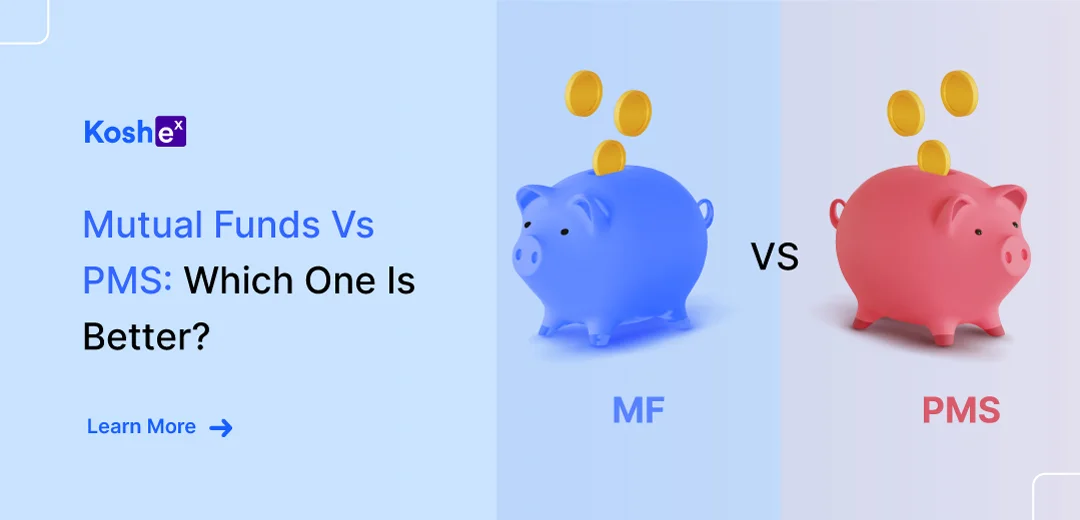Are you interested in making money make from the market? Then you should know the tactics of functioning within the market. If you enter the market at a young age, there is a probability that you will eventually learn to invest.
Risk and return are interrelated and they may affect your investment decisions. If you are a novice or want to invest larger amounts of funds into the market, it is natural to look out for help from some professional.
Mutual funds and Portfolio Management Services offer assistance in case the investor wants to be sure about the investment decision.
What are mutual funds?
A mutual fund is a pool of money from many investors managed by a professional fund manager. The investors have a common objective behind investing in a particular mutual fund.
The fund money is invested in equities, bonds, money market instruments, etc. The returns are distributed among the investors for their share of the investment.
What is a portfolio management service?
PMS is a professional service by experienced portfolio managers who have a research team. They manage their clients’ portfolios on their behalf. An investor has equity and debt options while opting for PMS. It is a personalized portfolio made as per each investor’s preference.
A comparison between MFs and PMS
As an investor, you can go for either or both of the above. Here you can find which one is better for whom.
- Customization: Mutual funds are managed by professionals but they are not customized. PMS is personalized funds. The portfolios created for each client address the specific needs of a particular client. There are different model portfolios from which you can choose large-cap, mid-cap, or small-cap portfolios as per your needs.
- The minimum amount of investment: You can invest just Rs. 500 to start your investing journey via MFs. But if you choose PMS, the minimum limit is Rs. 50 lakhs. This is a sizeable amount and beyond the reach of a regular investor.
- Investing authority: Investors invest in mutual funds and the fund managers invest this money in the stock market. PMS managers are hired and given the power of attorney so that they can invest in the stock market on behalf of the client/investor.
- Answerability: A mutual fund manager is not answerable to you. PMS managers are accountable for their actions. They are answerable to the investor on whose behalf they manage the portfolio.
- Transparency: There is more transparency in the case of PMS because, every purchase and sale transaction can be traced with exact information such as the date, brokerage, portfolio manager’s fees, etc. An investor can know each time whether profit is earned or loss is incurred. But it isn’t easy to measure the performance of a particular PMS as they create personalized portfolios comprising products as per individual preferences. Mutual funds provide a monthly statement of your holdings. MFs are usually framed in a way that caters to the needs of a common investor and the transparency is less.
- Portfolio composition: The variety of stocks in the case of MFs is quite wide. It could have more than 40 or 50 stocks. You can choose a mutual fund that suits your risk appetite, short-term and long-term financial goals, and other return aspects. PMS does not have a much wider spread. They are customized and include only those stocks that are preferred by the client.
- Control of the manager over the fund managed: A mutual fund manager has relatively lesser control over the fund managed than a PMS manager. The PMS manager controls the constituents of the portfolio and can change or adjust them if they do not serve the ultimate financial goal of the client.
- Returns: PMS can give better returns than MFs because of their flexibility or possibility of adjustment as per the set risk and return. Mutual Funds do not function that way. They contain what they contain in their portfolio and are dependent on the performance of their components.
- Fees charged: If you compare the fees aspect, PMS is dearer than MFs. Mutual fund managers charge their fees via an expense ratio. That could be anywhere between 0.50-2.50 percent. PMS managers charge 2-2.50 percent of the transaction value. This is chargeable on both the buy and sell transactions.
- Demat requirement: An investor doesn’t need a Demat account while investing in a mutual fund. But in the case of PMS, a Demat account is mandatory.
- Cost-effectiveness: PMS is flexible but MFs are cost-effective. If an investor wants to approach the market passively, MFs could be the best possible option. PMS is expensive. So if you plan to invest in them, you should expect 2-2.5 percent more return than from MFs.
- Diversification: Mutual funds offer diversification across sectors and stocks. You can judge the performance of a mutual fund by its capacity to beat the benchmarks. PMS may or may not be well diversified and/or include many sectors.
- Market sensitivity: The action of other investors does not affect the portfolio managed under PMS. After all, it is a separate entity in itself. Others’ actions like frequent redemptions, cannot affect your portfolio. The manager of a mutual fund may be forced to sell off the liquid stocks to create liquidity if the majority of investors are redeeming at the same time. It is market sensitive.
- Tax effectiveness: Mutual funds are tax-friendly options as compared to PMS. They have a pass-through status. Any number of stocks can be bought or sold without attracting tax. But if you talk about PMS, whenever a stock is purchased or sold in your name, there will be capital gain or loss.
Conclusion
It all depends on your choice because both MFs and PMSs are good options. You have seen the pros and cons of both of them. The ultimate goal of you as an investor plays a huge role. The amount to be invested, risk appetite, and expected returns are primary determinants to help you arrive at the decision. sign up with Koshex and start investing
Frequently Asked Questions
1. Is PMS a mutual fund?
Ans. PMS is not a mutual fund. It is a professional service offered by experienced portfolio managers to manage their funds. These managers directly manage the pool of funds of their clients. PMS involves investing a huge amount, as high as Rs. 50 lakhs as compared to just Rs. 500 in the case of mutual funds.
2. Should we invest in PMS?
Ans. If you have a larger amount of funds at your disposal, you may invest through PMS. As an alternative, you can invest in MFs or both of them. This way you can divert your funds into these two options as per your preference.
3. Is PMS approved by SEBI?
Ans. PMS is not approved by SEBI.









Leave a Comment